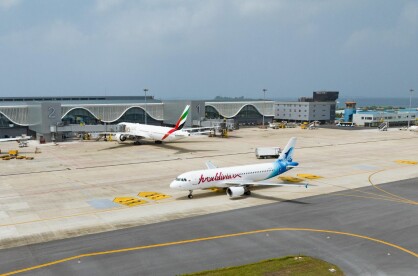In the Maldives, the traditional method of
conflict resolution has typically involved taking to the streets to voice
concerns. While this approach has extended to online platforms in recent times,
the country has lacked a structured communication channel between employers and
employees. Consequently, the voices and grievances of workers often remain
unheard, compelling them to resort to expressing their concerns through media
platforms and public demonstrations.
With this, it was becoming more and more
evident, especially as of late that a proper form of conflict resolution, such
as a trade union has been increasingly necessary in the Maldives. Introducing
trade unions in the Maldives could transform this dynamic by providing a
formalized avenue for dialogue. Acting as collective bargaining agents, unions
would facilitate open communication, ensuring that the concerns of employees
are effectively conveyed to employers, fostering a more constructive and
harmonious resolution of conflicts in the workplace.
Taking a major step towards making the work
environments in the Maldives safer, while also empowering the workforce and
fostering harmonious industrial relations, President Mohamed Muizzu has
ratified the Industrial Relations Bill. This ratification in the legislation
marks a significant step forward, providing a legal framework for the formation
of trade unions and safeguarding the fundamental right of workers to engage or
abstain from their activities. The ratification comes after the Parliament's
decisive action during its 37th sitting of the third session on December 18,
2023, addressing long-standing concerns about the absence of a specialized law
governing workers' associations.
The newly ratified bill aligns with the
constitutional guarantee of the right to form trade unions and the freedom to
participate in or refrain from their activities. While workers' associations
have historically existed, the absence of a dedicated legal framework has left
them without adequate legal authority. This legislation seeks to rectify this
gap, ensuring that the exercise of constitutional rights is supported by clear
legal parameters.
The Industrial Relations Bill goes beyond
merely recognizing the rights of workers and trade unions. It outlines
comprehensive measures to promote these rights, detailing the procedures for
establishing employee and employer trade unions. Additionally, the bill
provides a structured framework for resolving disputes between employers and
employees, addressing a crucial aspect of industrial relations. The legislation
delves into various trade union-related details, bringing clarity to an area
that was previously lacking specific legal guidance.
Under the act, President Dr. Mohamed Muizzu is
mandated to appoint a registrar of unions within 30 days of the bill's
ratification. The registrar holds a pivotal role in managing and maintaining
the registration of employee and employer trade unions. Beyond administrative
responsibilities, the registrar can enforce legal and regulatory measures
against unions that breach laws and regulations. This appointment aims to
ensure the proper functioning and oversight of trade unions, contributing to a
fair and transparent labour landscape.
In order to ensure that existing unions can
seamlessly align with the requirements of the new amended legislation, the bill
further stipulates that employee and employer trade unions registered under
previous laws or regulations must submit an application to the newly appointed
Registrar of Unions within three months of the bill's ratification.
The Industrial Relations Bill introduces
institutional enhancements, including the formation of an eight-member
Tripartite Advisory Board. This board will play a crucial role in advising on
matters related to industrial relations, bringing together representatives from
the government, employers, and workers. Additionally, the Employment Tribunal
is tasked with establishing a dedicated Industrial Dispute Resolution Division,
further streamlining the resolution process for industrial disputes.
The ratification of the Industrial Relations
Bill marks a transformative moment for labour relations in the country. As the
provisions of the bill come into effect, there is anticipation of a more
equitable and transparent environment, fostering cooperation between employers
and employees for the collective benefit of the workforce and the nation.






